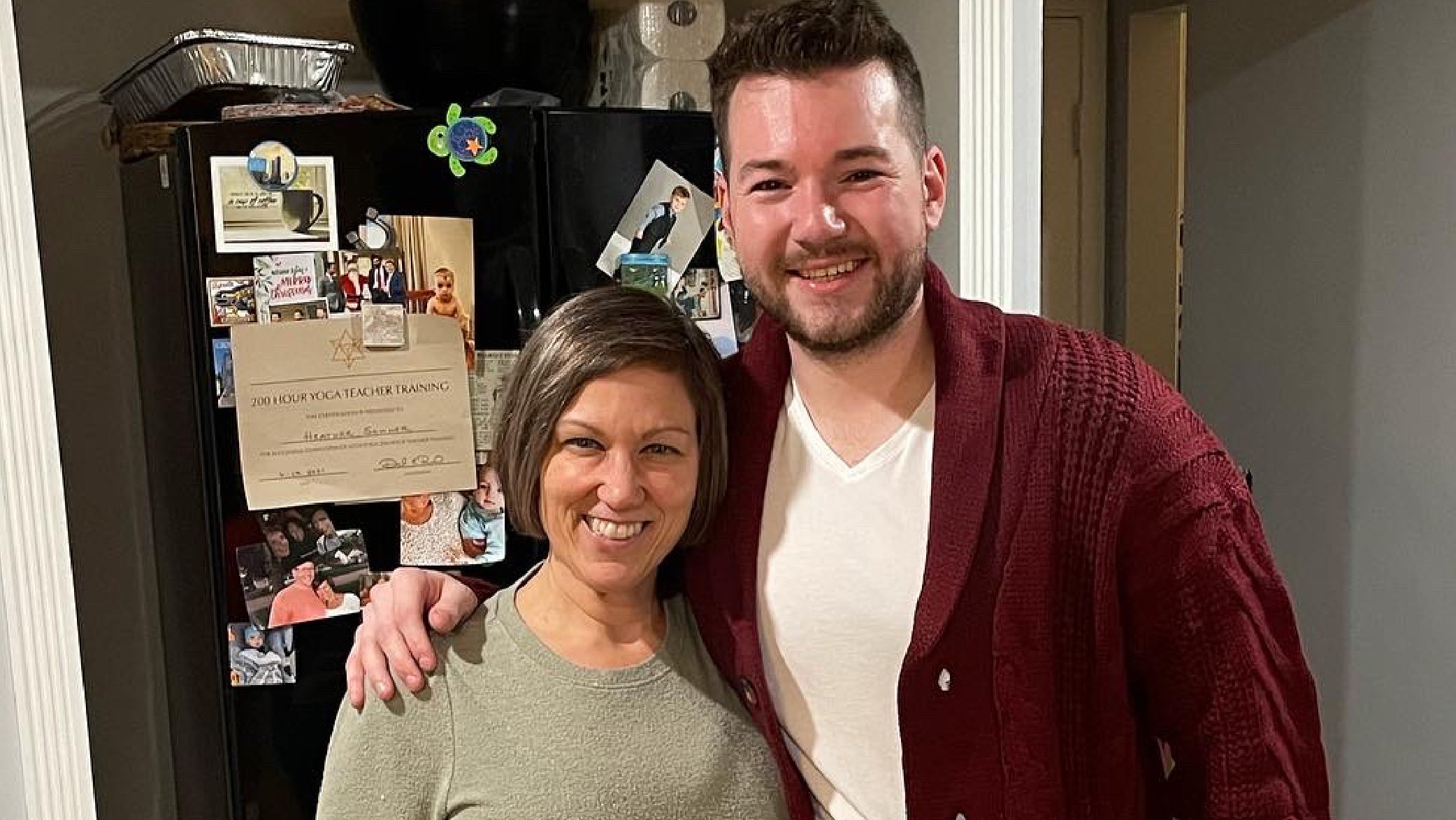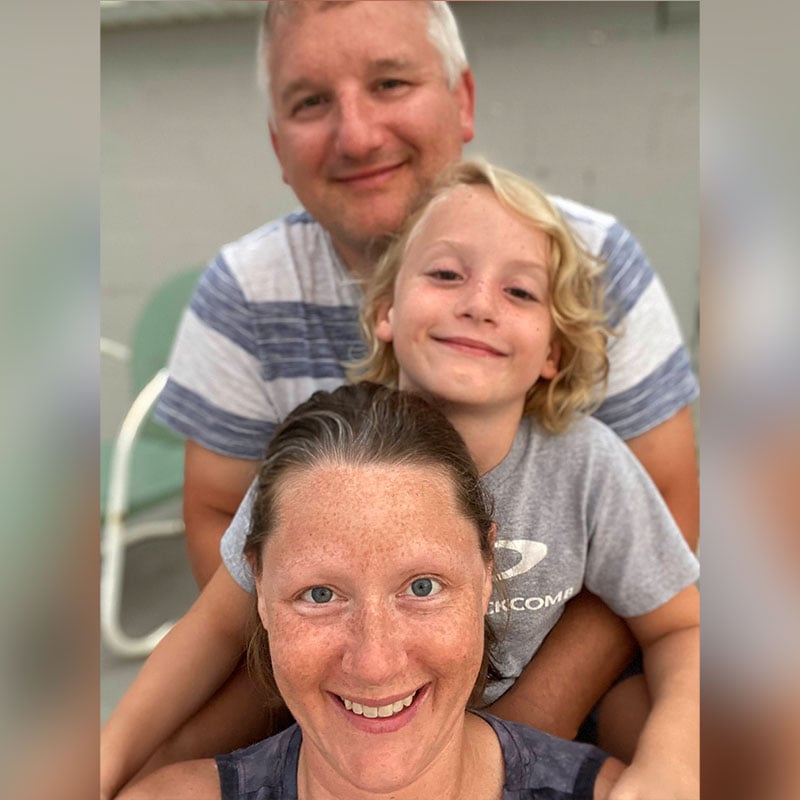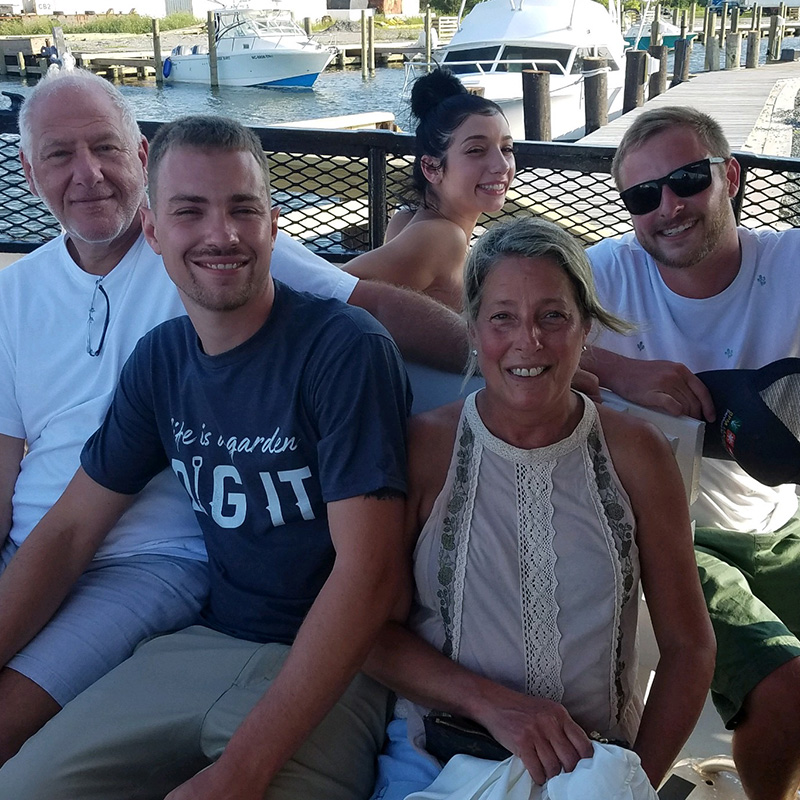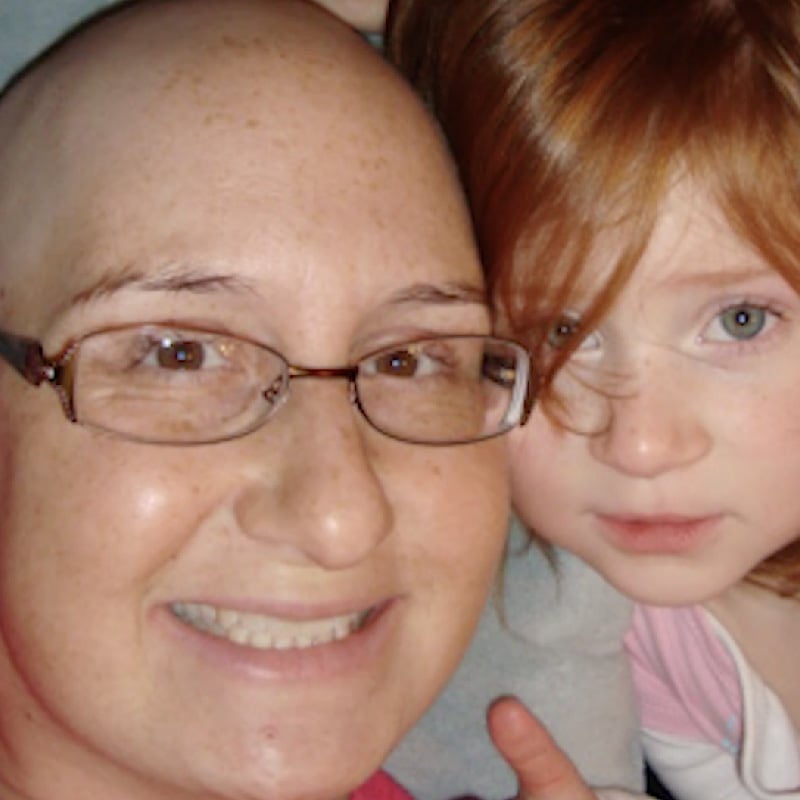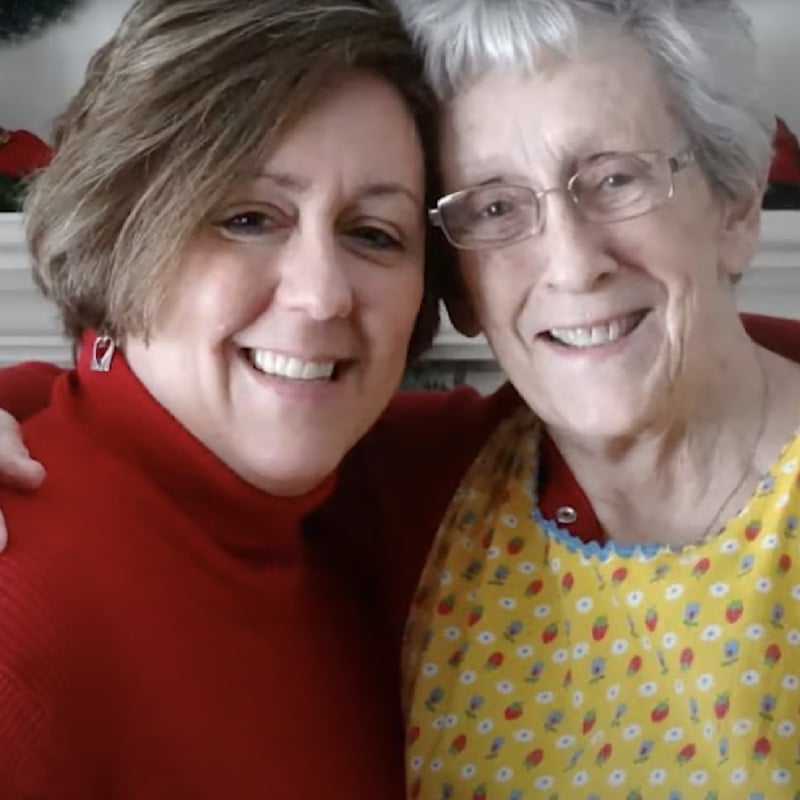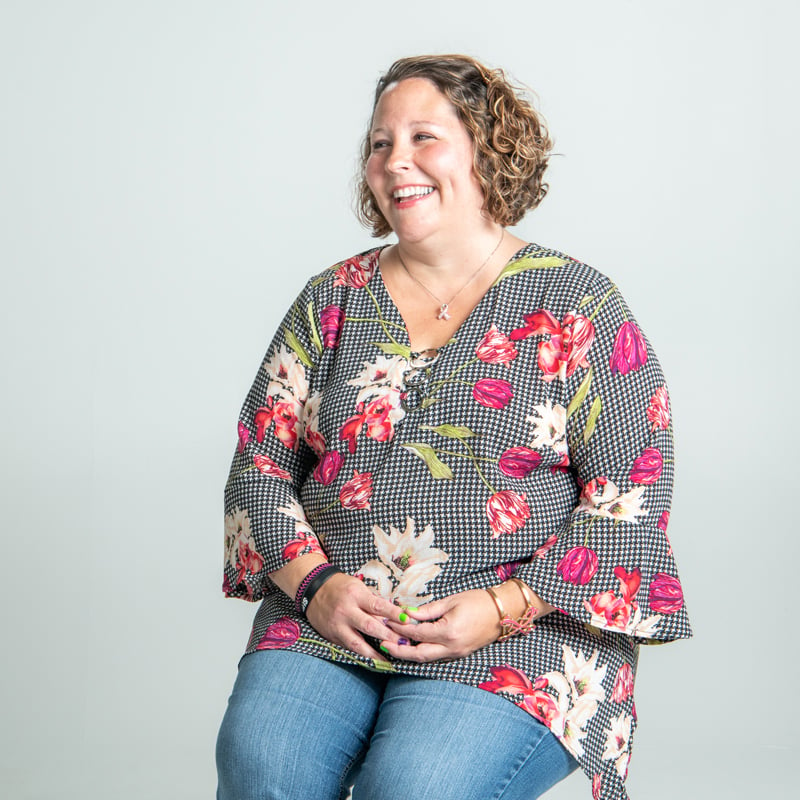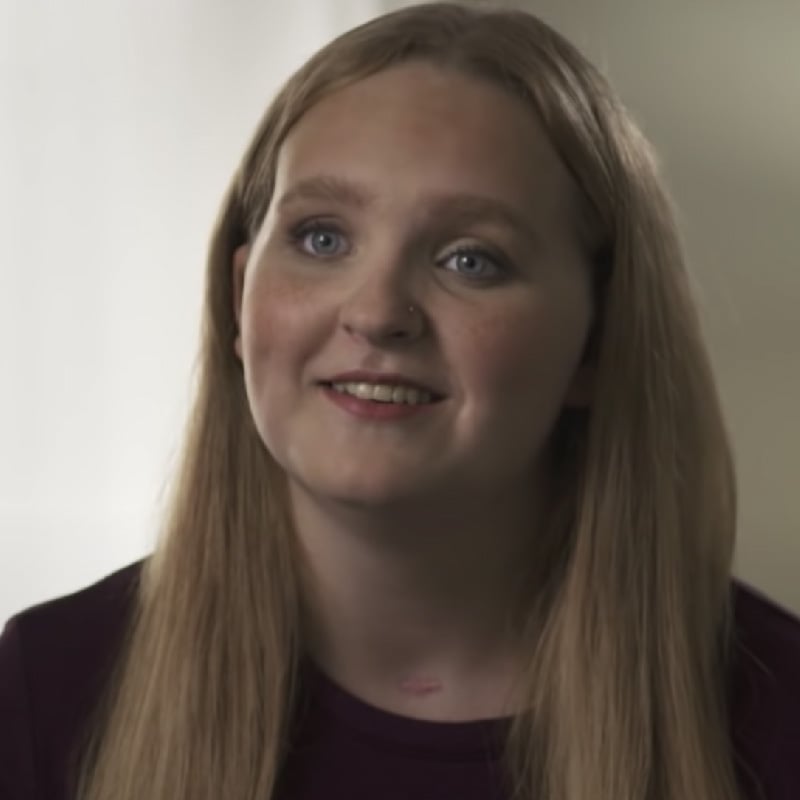If you ask the average person what someone who is at risk for cancer looks like, here are some things you might not hear.
Eats healthy. Works out 6 days a week. Rarely drinks alcohol. Non-smoker.
All of these words paint a picture of who Heather Sommer is. As a Rochester native, yoga and cycling instructor, and grandmother to two beautiful grandsons, she also uses three more words to describe herself: colon cancer survivor.
‘Something wasn’t right’
Strength and resolve have always been embedded in Heather’s character. After having her first child at 19, Heather worked as an insurance broker to support herself and her daughter before putting herself through college. In the years that followed, she graduated with a degree in psychology and a teaching certification, got married, and obtained a Master’s degree from Nazareth College.
Eventually, Heather shifted her career focus to strengthening others as a yoga and cycling instructor at Compass Cycle + Flow – where she still works today.
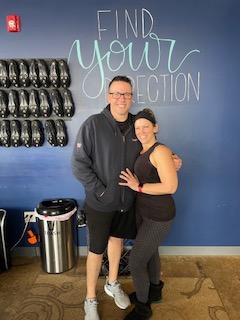
In November 2020, Heather noticed sudden changes in her bowel movements around the same time she started having severe cramps in her lower abdomen. Since she was 45 at the time, she thought the cramps signaled the early stages of her transition into menopause.
The cramps worsened to the point where she could no longer deal with them and she went to her primary care doctor and OBGYN. Her physicians agreed to schedule an ultrasound for her on Monday. It was a Friday, so the wait wouldn’t be too long.
But less than 36 hours later, Heather had her husband drive her to the emergency department at Unity Hospital to find relief for the excruciating pain.
“I knew it wasn’t normal for my body,” Heather said. “It was a red flag. I know I can get through pain, but this pain wasn’t getting better. Something wasn’t right.”
Diagnosis and surgery
After admitting Heather to the hospital, doctors ran several tests and scans, including an emergency colonoscopy, that ultimately led to the diagnosis of a partial bowel obstruction of her lower sigmoid colon. With the help of Koha Le, MD, and his team, Heather had surgery for a diverting colostomy.
About one week later, doctors confirmed Heather had stage 3 colon cancer – meaning it was in her sigmoid colon and had spread to several lymph nodes.
“I thought I was invincible,” Heather said. “I thought nothing like this could happen to me because I was healthy and active. I hardly drank alcohol and never smoked, and ate a lot of fruits and vegetables.”
In the days following her diagnosis, Heather took charge and forged ahead with the help of her medical team to seek out the advice of Patrick Solan, MD. Together, they decided she would undergo a robotic-assisted sigmoid colectomy to remove the diseased potion of her bowel and close her colostomy.
“Heather listened to her body and knew something wasn’t right, so she sought help – which is exactly what someone in her position should do,” Dr. Solan said. “Thankfully, our colorectal cancer team was able to diagnose her and quickly put together a treatment plan. Cases like Heather’s highlight the importance of starting preventative colorectal cancer screenings at age 45 as recommended by the U.S. Preventative Services Task Force.”
Remission and taking precautions
Following her surgery in late December 2020, Heather went through adjuvant chemotherapy to treat the cancer that doctors discovered in her lymph nodes. As an additional precaution, because her father died of bile duct cancer, Heather underwent cancer genetic screening.
Doctors described Heather’s recovery as “quicker-than-usual”– something she attributes to her active and healthy lifestyle.
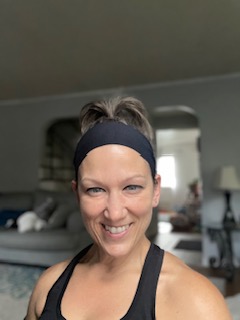
While Heather is currently cancer free, she is undergoing regular scans to ensure she remains in remission. Her journey with cancer means her daughter will begin regular colonoscopy screenings at age 35. Guidance from the U.S. Multi-Society Task Force recommends any person whose family is diagnosed with colon cancer begin colonoscopy screenings at age 35 or 10 years before the age at which the family member was diagnosed.
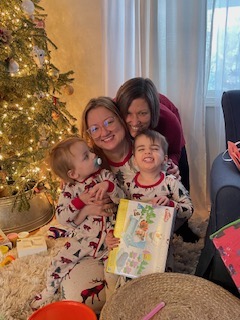
A cancer diagnosis is life changing. For others who might be going through something similar to her own experience, Heather encourages them to keep a positive outlook as best as they can.
“You do what the doctors tell you to do and follow what is recommended,” Heather said. “For me, staying as physically active as possible helped. It didn’t prevent me from getting cancer, but it helped me to recover more quickly.”

